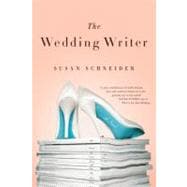
Note: Supplemental materials are not guaranteed with Rental or Used book purchases.
Purchase Benefits
What is included with this book?
SUSAN SCHNEIDER, a bridal magazine editor and writer, has spent the last ten years helping engaged women get ready for the Big Day. She is the former executive editor of Modern Bride and Elegant Bride, and currently of Bridal Guide. She has been an editor and writer for a number of other major women’s and parenting magazines and is the co-author of two marriage and relationship books with Dr. Sonya Rhodes. She lives in New York City.
The New copy of this book will include any supplemental materials advertised. Please check the title of the book to determine if it should include any access cards, study guides, lab manuals, CDs, etc.
The Used, Rental and eBook copies of this book are not guaranteed to include any supplemental materials. Typically, only the book itself is included. This is true even if the title states it includes any access cards, study guides, lab manuals, CDs, etc.